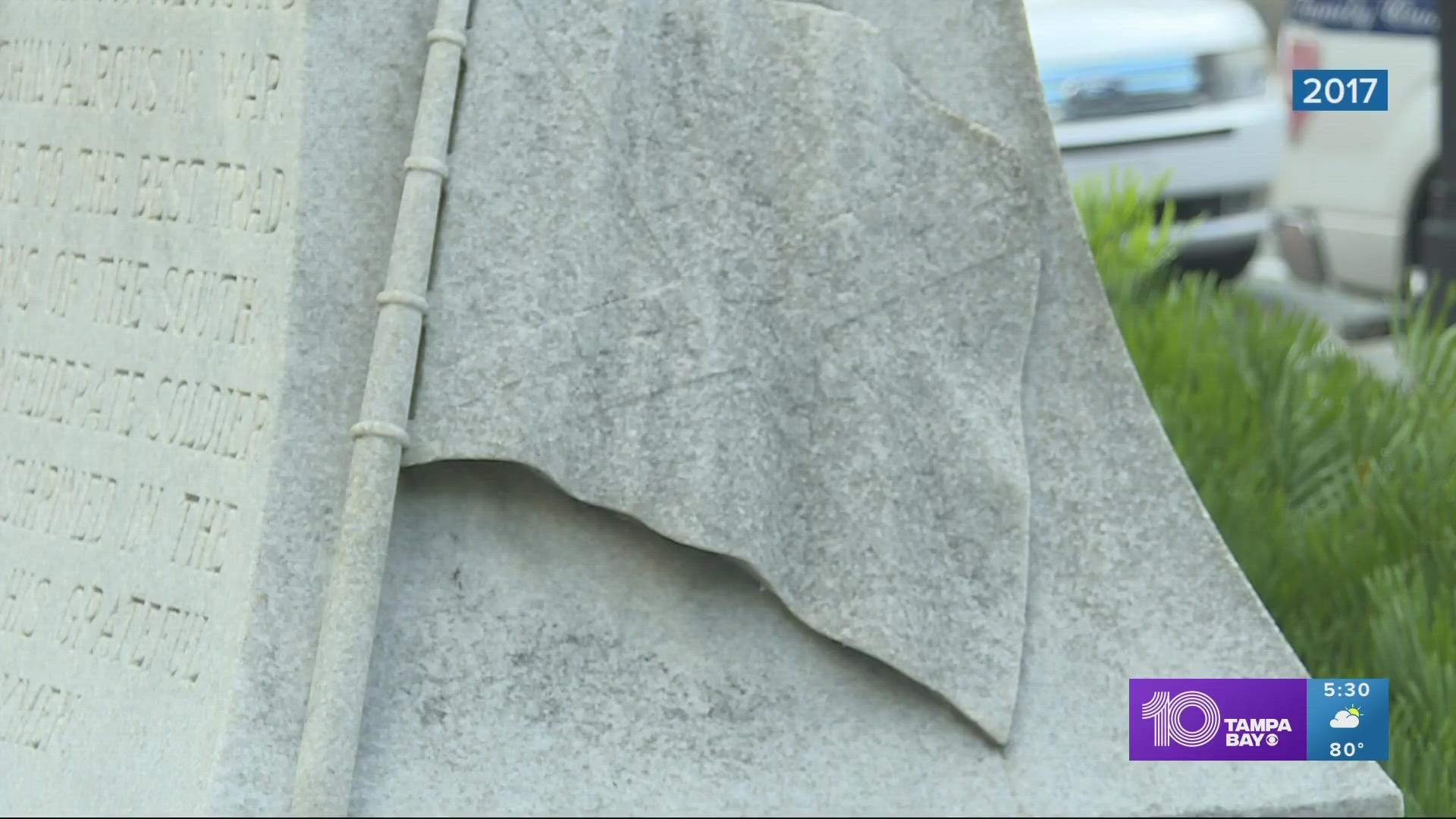ST. PETERSBURG, Fla. — A bill that would protect Confederate monuments and memorials across the state is gaining momentum with Florida Republican lawmakers.
The "Historical Monuments and Memorials Protection Act" (SB 1096) would hold any person or entity that destroys, defaces or removes a monument displayed on publicly-owned property liable for triple the cost to repair or replace it.
Originally filed last month, the bill was approved by the Senate Governmental Oversight and Accountability Committee in a party-line vote on Wednesday.
Although the legislation does not specifically reference Confederate memorials, it is being considered at a time where the removal of such monuments continues to spark controversy and debate across the country.
According to a 2022 report from the Southern Poverty Law Center, there are 75 Confederate memorials still standing in Florida and more than 700 across the country. Officials in Manatee County are even considering restoring and replacing a Jim Crow-era Confederate statue that was removed after a 2017 vote.
Supporters of Confederate monuments have argued that removing them would erase Southern history.
“I don’t like ignoring our history. It is what it is. Some things about it are good, some things aren’t, but it’s our history,” Manatee County Commissioner Vanessa Baugh told the Bradenton Herald. “We shouldn’t be changing our history.”
Efforts to remove the memorials are largely driven by those who feel the statues and plaques glorify the nation's sordid past and the leaders who fought for the right to own slaves.
“I believe that monument represents a past that is not reflective of how the community wants to be seen today,” Luther Wilkins, president of the Manatee NAACP, told the news outlet. “To other people, it would be a war that was fought for a family’s livelihood and way of life, but to us, it’s a bitter past. It’s a hurtful past.”
“There’s no joy we find in the Confederate flag or any statue that represents that time,” Wilkins added.
The bill currently being considered by Florida lawmakers would need to be passed by the legislature and then signed by Gov. Ron DeSantis in order to become law.

